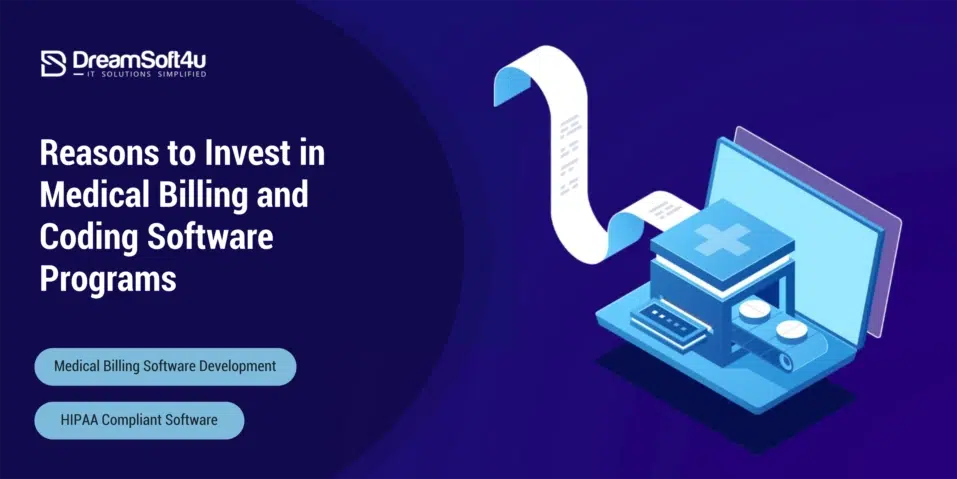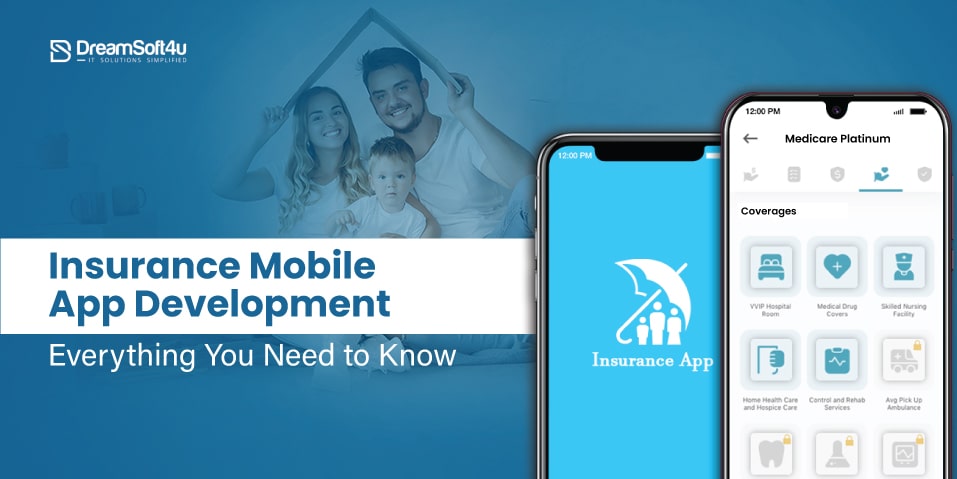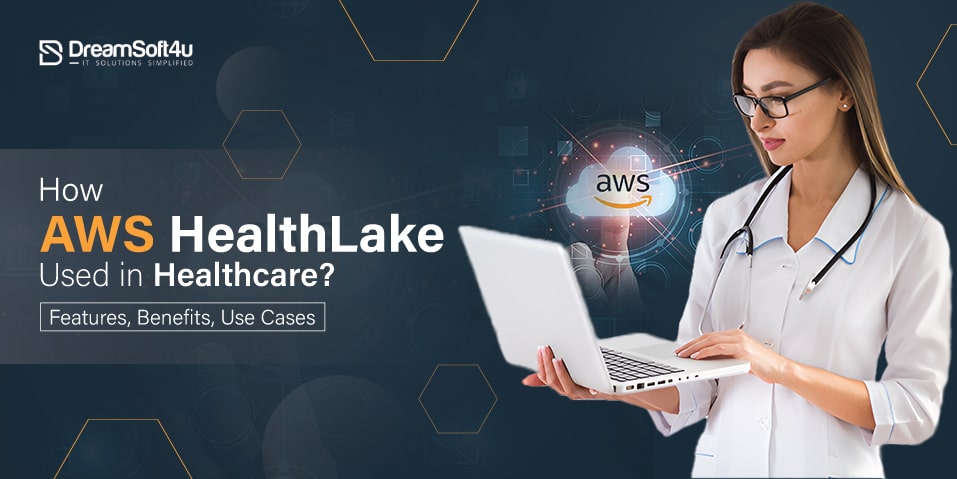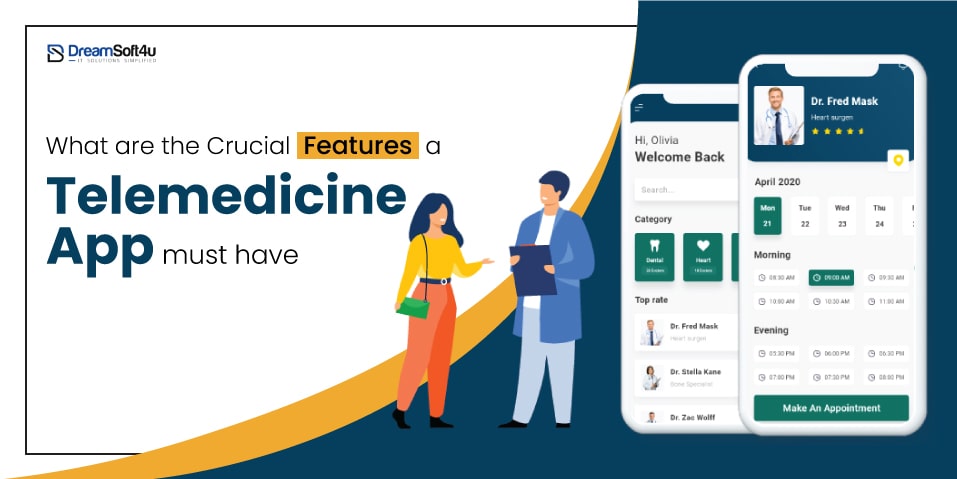In the healthcare industry, accurate and efficient medical billing and coding software are crucial for smooth operations and financial success. Did you know Banner Health recently faced a hefty $1.25 million civil monetary penalty for potential violations of the Health Insurance Portability and Accountability Act (HIPAA)?
Digital transformation offers a bag full of opportunities for healthcare organizations. But these benefits come with some challenges, the primary among these is data governance and security.
Many healthcare providers are turning to medical billing and coding software to protect patent/employee data online. Other than data security, these software programs offer numerous benefits, making them a worthy investment for healthcare organizations.
Table of Contents
ToggleWhat exactly is Medical Billing and Coding?
Today, a significant portion of the American population utilizes online platforms for health insurance enrollment and management. As such healthcare app development organizations need a billing infrastructure that can ensure a seamless experience for patients.
Medical billing software translates medical procedures, diagnoses, and services into universally recognized codes for billing and insurance purposes. Building a medical billing software is a complex process. That’s why healthcare organizations rely on healthcare IT companies to do the work on their behalf.
In this blog, we will explore why investing in medical billing and coding software programs is essential and how they can positively impact revenue generation, compliance, efficiency, and more.
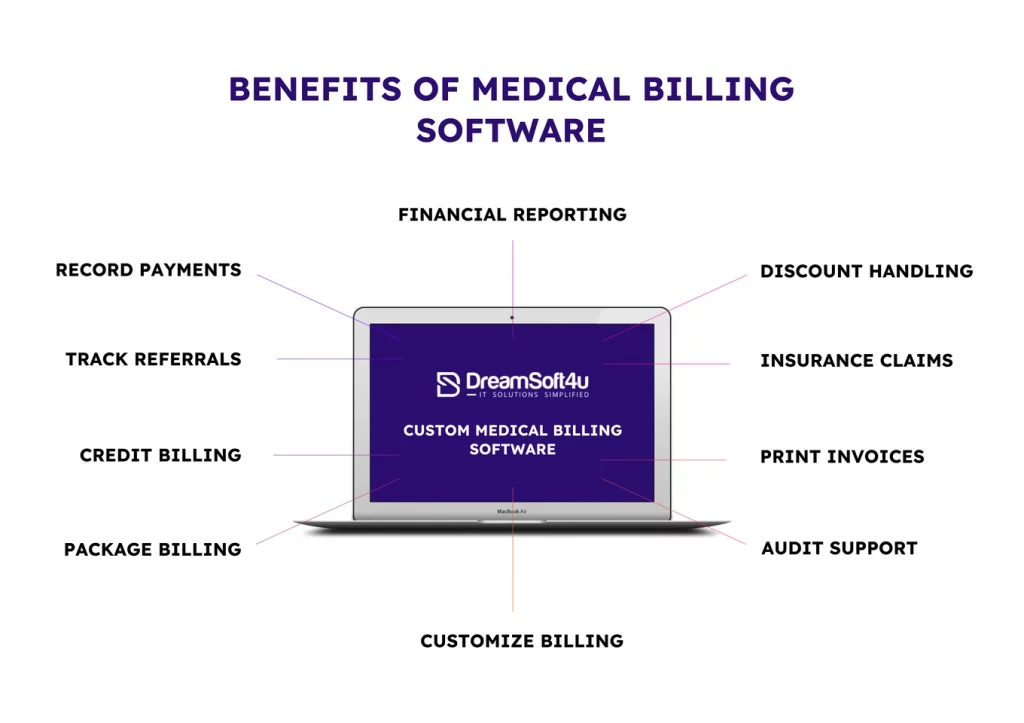
Streamlined Billing and Coding Processes
Medical billing and coding software programs offer automated generation of bills, claims, and invoices, eliminating the burden of manual data entry and paperwork. This automation enables healthcare organizations to save valuable time and allocate resources more efficiently, empowering their staff to concentrate on crucial responsibilities. Some investors also ask about the medical billing coding salary to understand the budget.
Medical coders, who review medical records and assign standardized codes for documentation, billing, and reimbursement, can reclaim up to 20 hours per week with medical billing software. This enhanced productivity allows healthcare teams to accomplish more in less time, leading to better patient care.
Improved Accuracy and Compliance
Another significant benefit of medical billing and coding software programs is their ability to ensure adherence to coding guidelines and regulations. These programs are designed to stay up-to-date with the latest coding standards and requirements, minimizing compliance risks and potential penalties.
Medical billing and coding software programs also help reduce billing errors and claim rejections. With automated code suggestion features and built-in coding rules, these programs help coders select the most appropriate codes for each patient encounter. This accuracy not only ensures proper reimbursement but also facilitates faster claims processing and resolution.
Enhanced Efficiency and Productivity
The use of medical billing and coding software programs can significantly enhance efficiency and productivity in healthcare organizations. These programs eliminate administrative burdens and paperwork by digitizing and automating various billing and coding tasks. This reduction in manual work allows staff to allocate their time and energy to more critical responsibilities, such as patient care and revenue optimization.
On average medical billing software can reduce claims processing time by 40%. These software programs offer time-saving features like automated code suggestions and templates. These features expedite the coding process, allowing coders to work more efficiently. Additionally, these programs provide streamlined workflow management for billing and coding teams, enabling better coordination and collaboration.
Increased Revenue Generation
Medical billing and coding software programs are crucial in maximizing revenue generation for healthcare organizations. These programs identify missed revenue opportunities and coding gaps, enabling organizations to capture all billable services and procedures.
Moreover, medical billing and coding software programs improve denial management and facilitate faster claims resolution. As per a study, identifying and capturing missed reimbursements can result in an additional $50,000 in revenue annually.
With automated claim scrubbing and validation, these programs help identify and address potential issues before claims are submitted. This proactive approach reduces the chances of claim rejections and denials, minimizing revenue loss and improving overall revenue cycle management.
Efficient Claims Processing and Revenue Cycle Management
Medical billing and coding software programs enable faster submission of claims to insurance providers, reducing the time it takes to receive payment. These programs automate the claims submission process, ensuring that they are accurately completed and sent to the appropriate payers.
A recent survey highlights that healthcare organizations have recorded a 25% reduction in denials and improved overall billing experience after adopting medical billing software. Features like automated claim scrubbing and validation help identify errors and discrepancies in claims before submission, reducing the likelihood of rejections.
Compliance with Changing Healthcare Regulations
The healthcare industry is constantly evolving, new coding and billing requirements pop up frequently. Medical billing and coding software programs are designed to adapt to these changes, ensuring compliance with evolving regulations. These programs incorporate updated code sets and compliance rules, allowing healthcare organizations to stay current with industry standards.
Do you know that non-compliance with HIPAA regulations can result in penalties? These penalties can range from $100 to $50,000 per violation, depending on the level of culpability.
By using medical billing and coding software programs, healthcare organizations can minimize compliance risks and stay up-to-date with regulatory changes. These programs provide a centralized platform for managing coding and billing processes, making it easier to implement necessary updates and maintain a 100% compliance record.
Integration with EHR Systems and Interoperability
Medical billing and coding software programs offer seamless integration with Electronic Health Record (EHR) systems, enhancing data exchange and interoperability. This integration eliminates the need for duplicate data entry, reducing the chances of errors and inconsistencies. It also improves collaboration between healthcare providers and billing/coding teams by enabling the sharing of clinical and billing data.
With integrated EHR and medical billing and coding software programs, healthcare organizations can streamline their operations and improve communication. This interoperability ensures that accurate and up-to-date information is shared between different departments, resulting in more efficient workflows and better patient care.
Long-term Financial Benefits and Positive ROI
Investing in medical billing and coding software programs can lead to long-term financial benefits and a positive return on investment (ROI). These programs increase revenue generation by optimizing coding accuracy and reducing claim rejections. They also improve efficiency and productivity by automating repetitive tasks and streamlining workflows.
Must-have Features in Medical Billing and Coding Software
When choosing medical billing and coding software, custom healthcare software development providers should prioritize key features that enhance accuracy, efficiency, integration, reporting, claims management, and data security.
1. Comprehensive Code Sets and Updates:
- Ensure the software supports a wide range of medical codes, including ICD and CPT.
- Look for built-in databases with the latest code versions.
- Verify the ease of updating the code sets as new versions are released.
2. Integration with Electronic Health Record (EHR) Systems:
- Opt for software that seamlessly integrates with EHR systems.
- Streamlines the coding process by automatically pulling relevant patient information.
- Automates data entry, reducing errors and improving efficiency.
3. Robust Reporting Capabilities:
- Choose software that offers customizable reporting options.
- Generates reports for billing, financial analysis, and compliance monitoring.
- Enables users to specify criteria such as date range, provider, or insurance company.
- Serves reports that are easy to read and exportable in various formats.
4. Efficient Claims Management Tools:
- Opt for software with built-in claims management features.
- Utilizes claim scrubbing to identify errors or missing information.
- Leverages real-time claim tracking to monitor claim status and highlights issues that may delay reimbursement.
- Minimizes claim denials and ensures timely payments from insurance companies.
5. Robust Data Security Measures:
- Prioritize software with strong security protocols to safeguard patient data.
- Consider features like encryption, access controls, and regular data backups.
- Protect sensitive patient information from unauthorized access or loss.
Planning to Invest in Medical Billing and Coding Software?
Connect with our dedicated IT Professionals
Concluding thoughts
In conclusion, medical billing and coding software play a crucial role in streamlining the complex process of medical billing and coding. When selecting a software solution, healthcare providers should consider must-have features such as comprehensive code sets, integration with EHR systems, claims management tools, strong security measures, etc.
Dreamsoft4u, a leading healthcare software solution provider, offers state-of-the-art medical billing software development. Our solutions are designed to enhance revenue cycle management, improve compliance, and maximize efficiency.
Whether you are a small practice or a large healthcare organization with multiple footprints, we can design the perfect solution that makes billing a hassle-free exercise for you. Our team of experts will streamline your billing process, allowing you to focus on providing quality patient care. Contact us now to know how!
Frequently Asked Questions (FAQs)
1. How much time does medical billing software development take?
The time required for medical billing software development can vary depending on the complexity of the project, desired features, and development approach. Typically, it can take 3-6 months to develop a medical billing software solution.
2. Can I buy off-the-shelf medical billing software?
Yes, you can buy ready-to-use off-the-shelf medical billing software solutions. But these options are pre-built. They may not always fit your specific needs and workflow.
3. Should I use custom medical billing software?
Custom software offers the advantage of tailor-made features and functionality that align with your unique workflows and processes. However, a custom software development company requires more time and resources.
4. Is there any add-on fees that I should know about?
Some common add-on fees to consider include implementation fees, training fees, support fees, and fees for additional modules or integrations.








